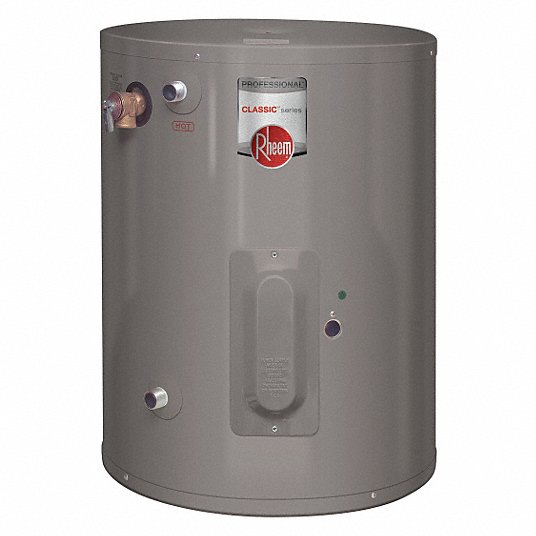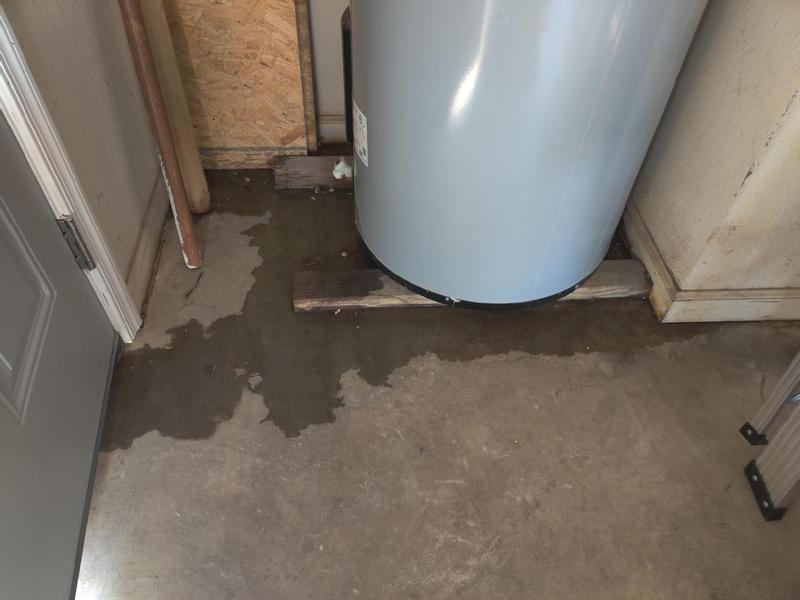Key Procedures for House Owners Confronting Problems with Broken Hot Water Systems
Key Procedures for House Owners Confronting Problems with Broken Hot Water Systems
Blog Article
Every person has their own conception in relation to Maintaining & Draining a Water Heater.

Whether it lies in the basement or a separate space, busted hot water heater can create tension. A standard unit holds 80 gallons, so an overnight leakage will certainly result in a flood. This leads to significant home damage with drenched walls as well as floors. Having no warm water supply is also frustrating. If you are taking care of these concerns, keep in mind of the following:
Shut Off Power Source
Before calling the plumber, turned off a gas hot water heater by turning the temperature dial. This is normally found on top of the thermostat. Switch off the circuit breaker if you have a design that runs on electric power. This will stop electrocution, particularly if there is a leakage as water is a conductor. Typically, the heating element shuts down when the water hits a certain temperature. But with a broken container, it may malfunction. Sufficing off ensures you remain secure.
Cut Off the Cold Water Supply
Cut off the containers faucet water supply from the source. This goes from your main water line into the tank. When your container remains in good condition, the cold water stops filling up when the container is full. Given that it is dripping, the water will proceed to move. Close the valve located on top of the heater. Rotate this clockwise to close it off. If you can not find it or reach it, you must switch off that main water line outside your property.
Call the Plumber
After doing the very first two safety and security steps, you need to call your plumber to come today to fix a burst water heater. Nevertheless, remember that your system will not simply conk out significantly overnight. There are typically indications that your aging hot water heater has sediment accumulation in the inside. Remember of the following:
Do not await significant flooding to call the plumber. By then, you will have to invest more to restore your home. Rather, as quickly as you detect these indications, have actually a specialist come to evaluate your water heater thank. Usually, hot water heater have a life expectancy of regarding 8 to 12 years. With routine assessment as well as upkeep, you can extend its life.
Tidy up Home
After calling the plumber, file damages by taking notes and also photos so you can assert your home owner's insurance policy. From there, begin the prompt clean-up. Secure any type of essential belongings to avoid additional saturating. Then, remove any kind of standing water to stop mold as well as mold development. Utilize that to drain the water if you have a submersible water pump. Or else, the traditional bucket method will certainly also work. Try to wipe out everything, consisting of walls and also baseboards. If you have an electric follower and dehumidifier, maintain them running to maintain air distributing. This will help prevent mold development.
Keep in mind, if you notice any type of issues with your water heater, call the pros right away. You can not take this issue gently due to the fact that a damaged thermostat can elevate water temperature to an alarmingly high degree, leading to unexpected burns. A broken heater stress safety valve can also trigger a surge. For ideal results, get an annual check so your system obtains inspected, cleaned, drained, and also refilled, guaranteeing optimum efficiency.
Whether it is situated in the cellar or a separate room, broken water heaters can trigger anxiety. Prior to calling the plumber, closed off a gas water heater by turning the temperature level dial. After doing the very first 2 safety and security actions, you must call your plumber to come right away to fix a burst water heating unit. If you have a completely submersible water pump, utilize that to drain pipes the water. Keep in mind, if you notice any kind of concerns with your water heating system, call the pros right away.
Is My Water Heater Broken?
The Water Heater is Old
No appliance will last forever. This includes a home’s water heater. During its lifespan, residents are going to face a situation where a new water heater installation will be necessary. The biggest problem with this is that most people are not sure when their water heater expires. Not knowing this can lead to serious risks if the unit begins to act up due to old age.
Most makes and models of water heaters will last between eight and 10 years. While 10 years is the age when water heater replacement is highly recommended, the need to replace the unit may occur before this time or after. If the unit doesn’t show any symptoms of a problem, it is a good idea to replace it at the 10-year mark (from the manufacture date).
Some of the symptoms that indicate a new unit is needed include rusting, leaks, noises, and a failure to heat up the water. Also, note that not all units have a 10-year life expectancy. The main exception to this rule is that a gas unit will last for six to eight years.
Rusty Heater Inlet Valve or Water
While steel is the strongest material on earth, it does have a weakness – rust. If corrosion occurs on a steel surface, it will begin to spread and eat through the steel in certain areas. On water tanks and pipes that are made of steel, rust is a warning sign of an impending leak.
The issue for many is trying to figure out if the rust is coming from the water heater or the pipes that lead to the faucet. If rust is seen, it is a clear indication that water heater service from the professionals is needed.
If rusty water appears out of the faucets in the bathtub or sink, it likely means a rusty water heater. If there is rust near the water inlet or the pressure relief valve, rust has likely developed inside the tank. If tap water appears rusty, it may be an issue with the pipes.
Strange Sounds from the Water Heater
Are there strange sounds coming from the tank? As a water heater gets older, rumbling noises may develop and get louder and louder as the water in the tank heats up. In homes where large amounts of hot water are used, the issue is likely going to be even more obvious when more serious issues arise. If there is a strange or loud noise coming from the unit, it is probably because of sediment buildup. A good way to remedy this problem is by flushing the heater. If this does not work, then a new unit may need to be installed.
Leaks
As a water heater gets closer to the end of its useful life, there is a higher chance there will be water around the tank. If there is water, this usually means leaks are occurring. Based on where the unit is located in the home, a leak may result in serious property damage.
Leaks are usually caused by expansions in the metal tank. The expansions occur as time passes and as the inside body of the tank is exposed to multiple heating cycles per day. When a fracture forms, the gap will be slight enough to hold the water in; however, in more serious situations, this will not be the case. If the tank is idle, the water will not leak but when the metal expands during each heating system, small amounts of water will get through the gap.

I'm just very curious about How to Avoid a Broken Hot Water Heater and I'm hoping you appreciated my entry. Are you aware of anybody else who is serious about the subject? Do not hesitate to promote it. We love reading our article about How to Avoid a Broken Hot Water Heater.
Affordable? Call now! Report this page